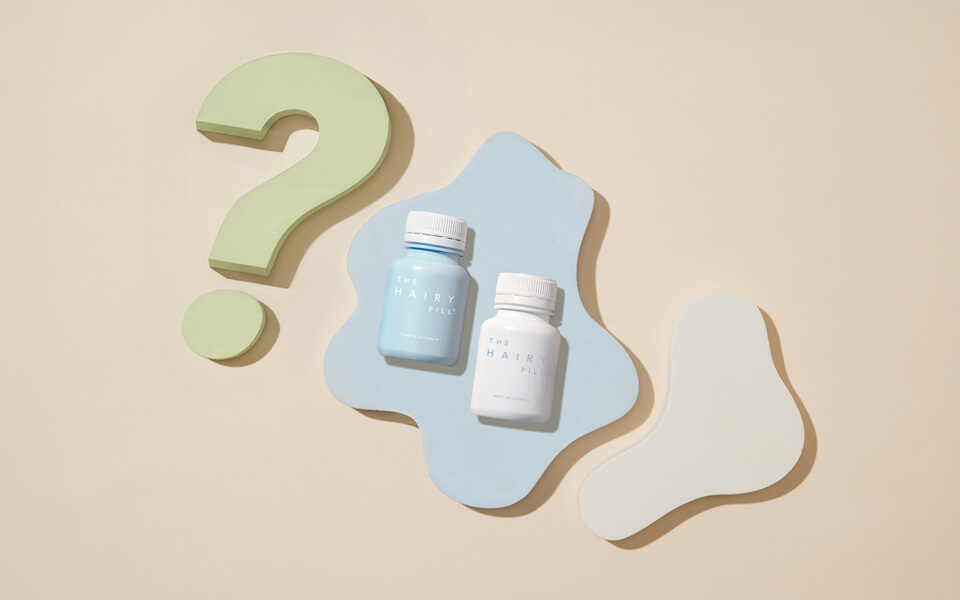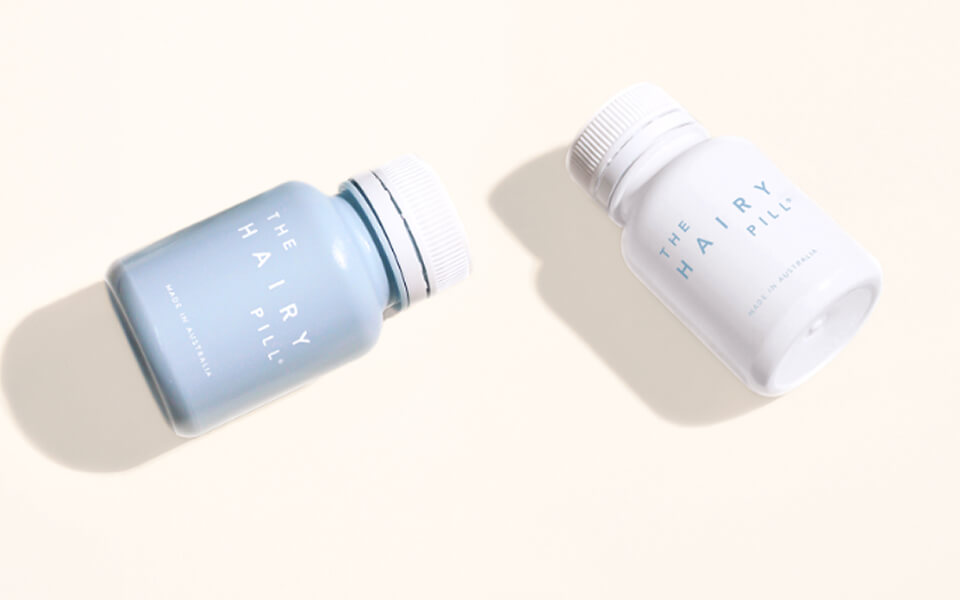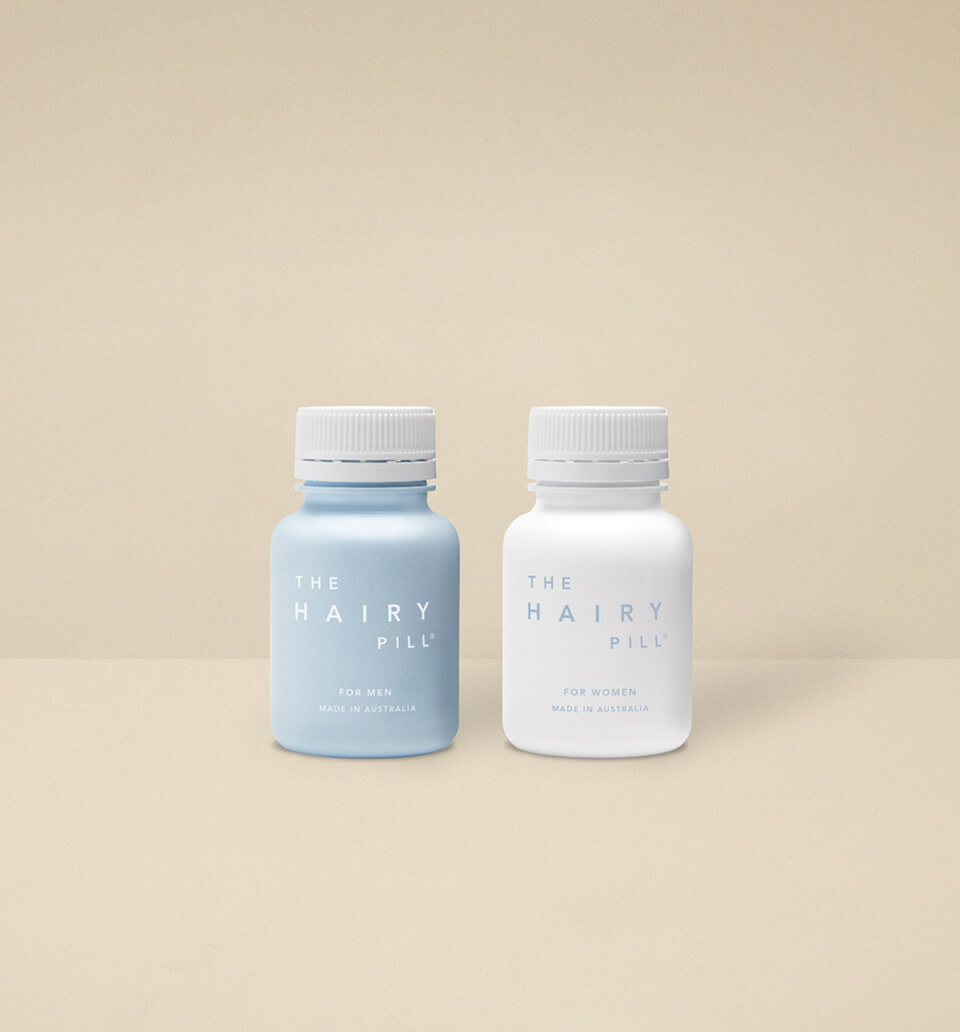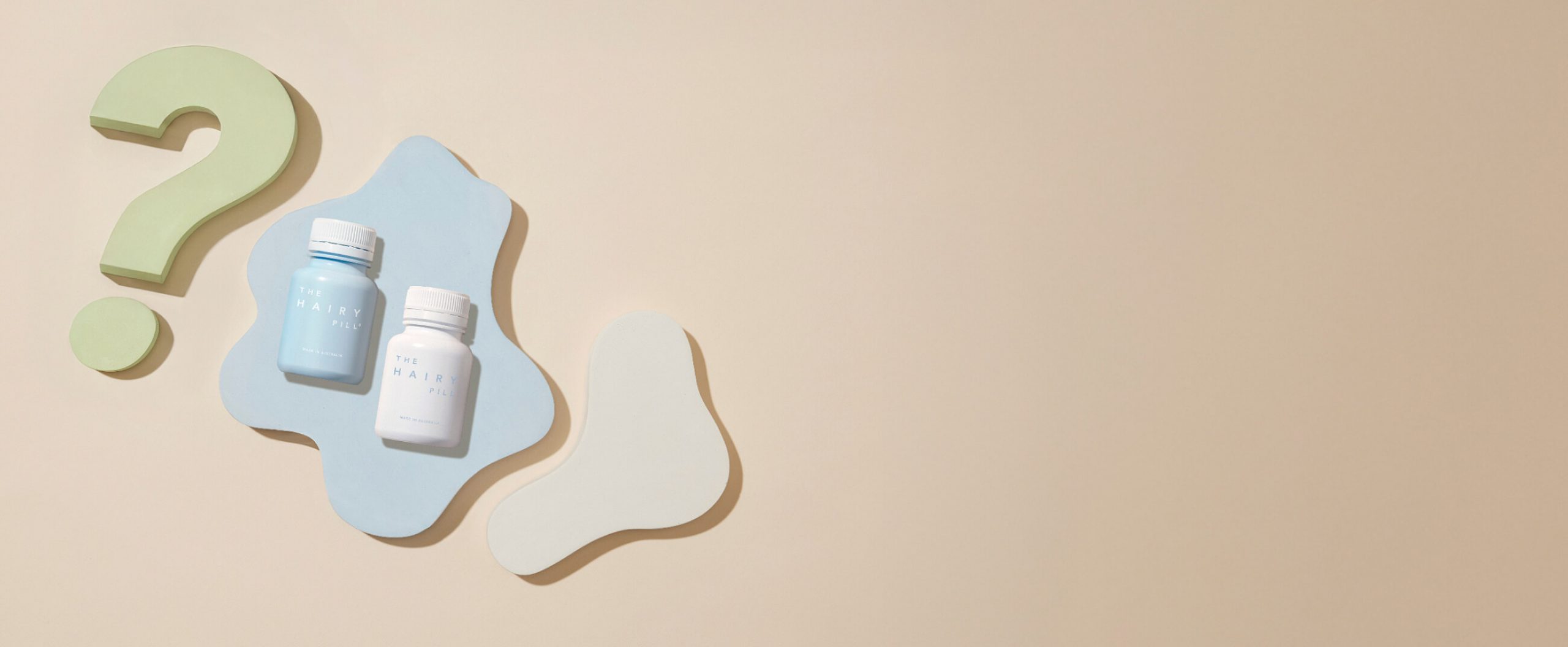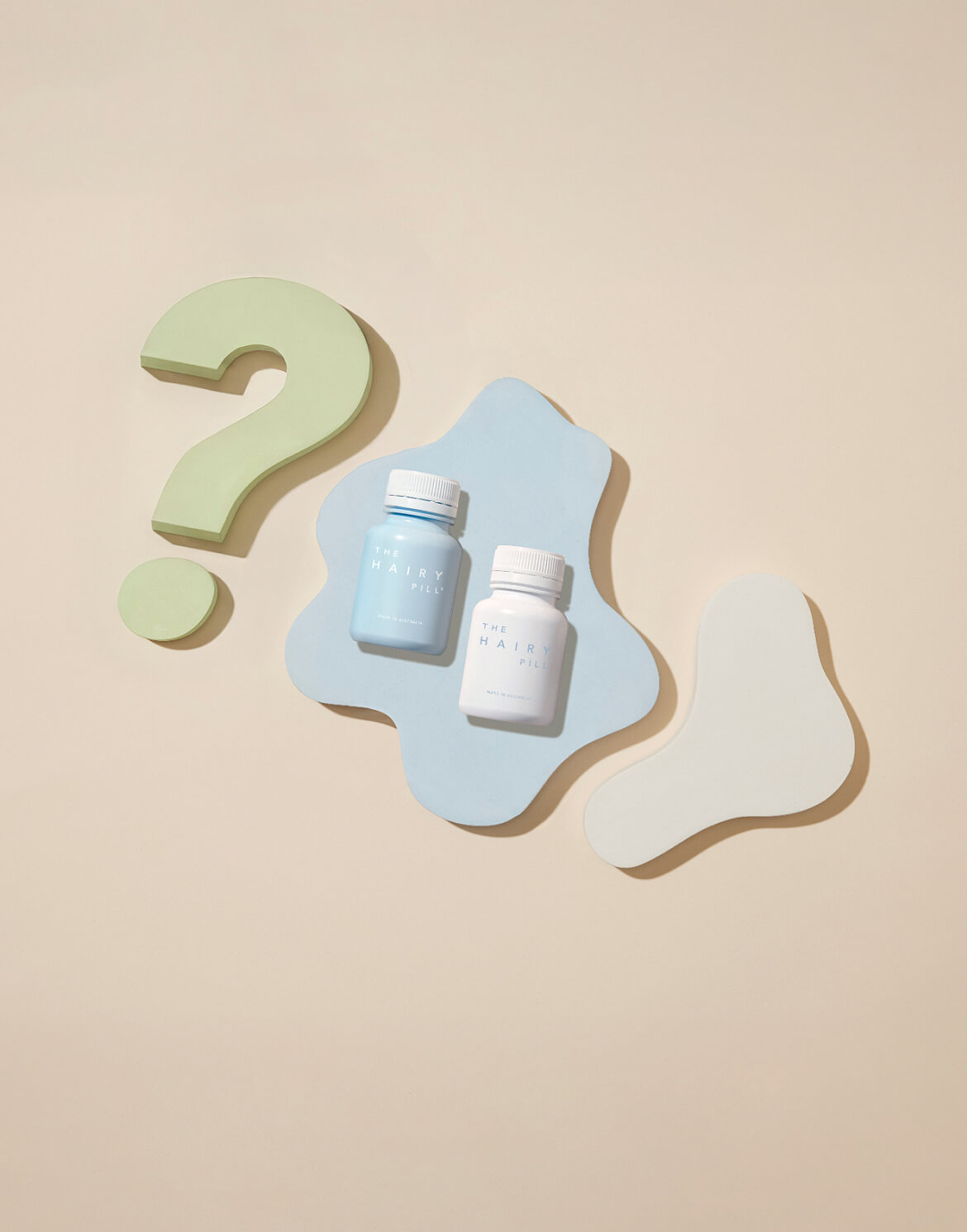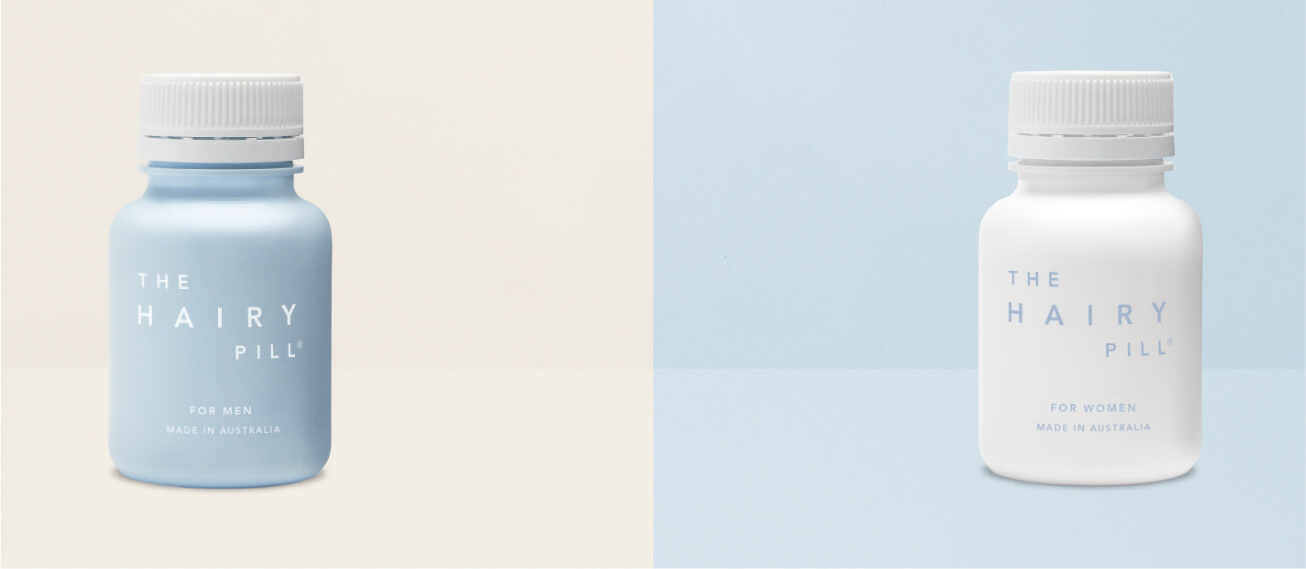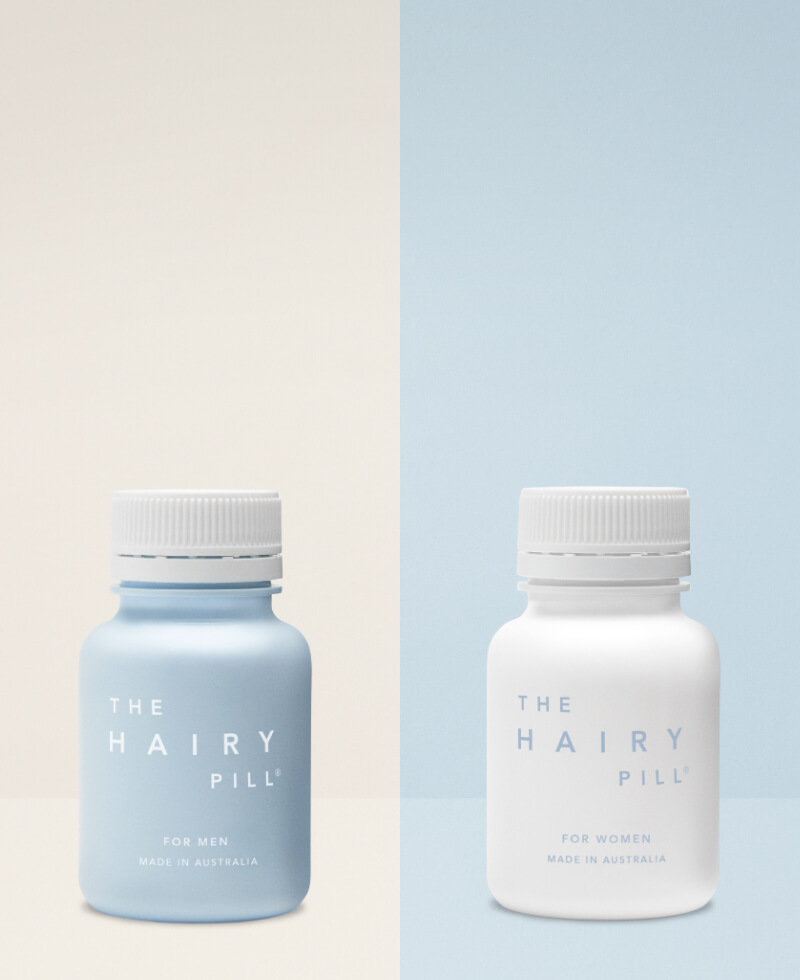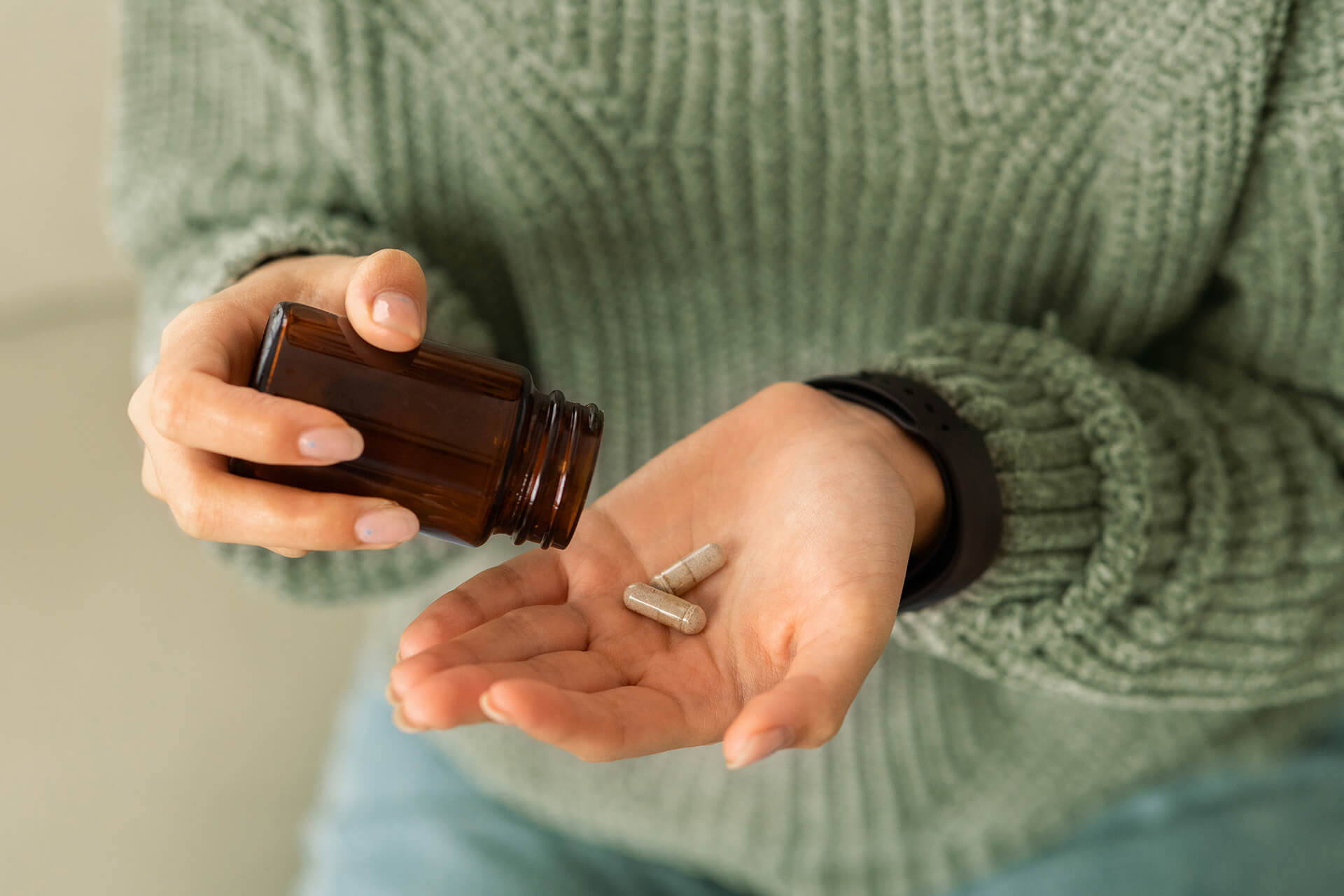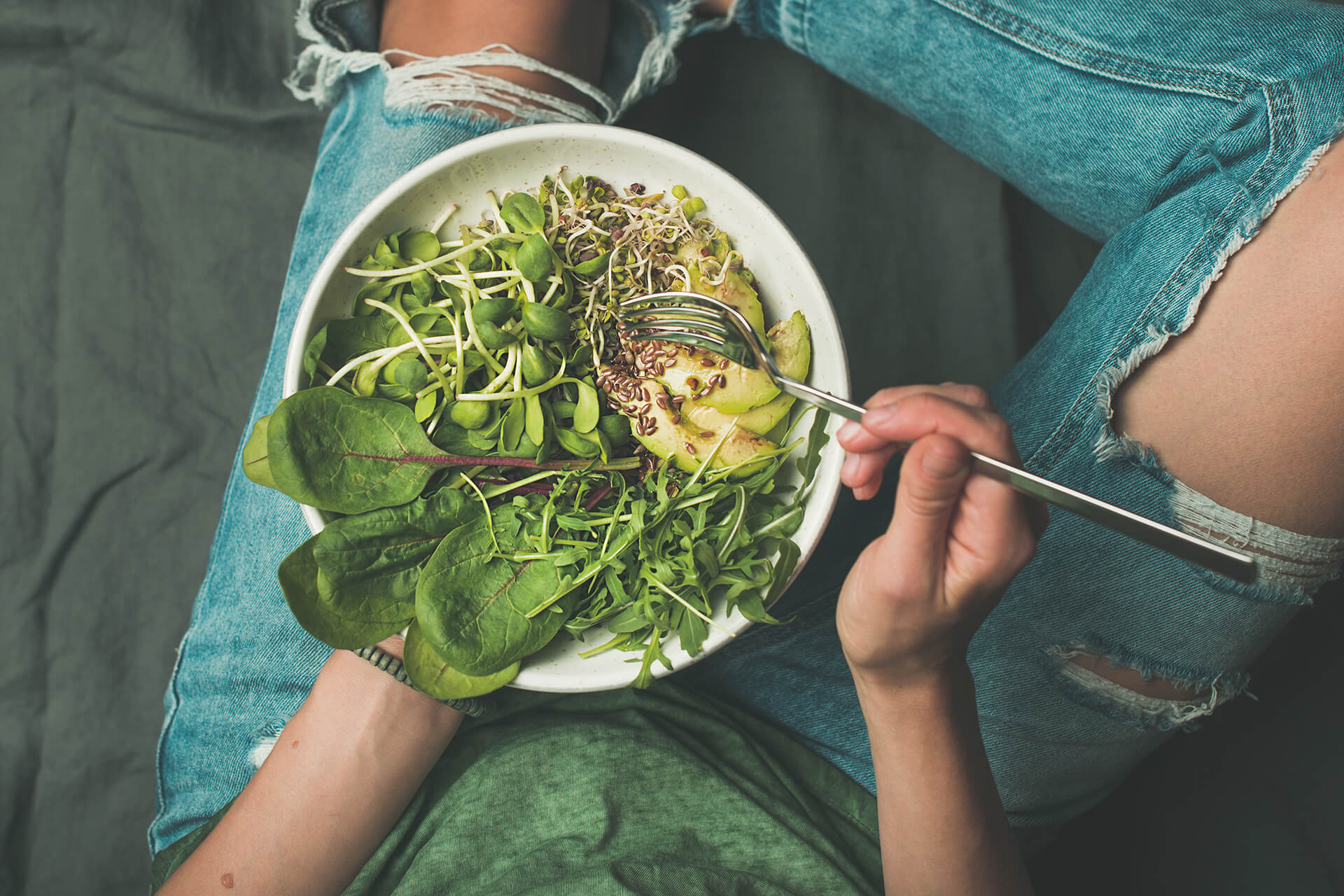Fed up with limp, frizzy, split-ended, or barely-there hair? Finding the right routine to have strong and healthy locks can feel like an uphill battle.
And even when you do find the Goldilocks protocol of washing, brushing, and styling, something — call it aging, hormonal changes, a health issue, or stress — can send your routine off-kilter and leave you starting from scratch.
There’s no point in tearing your hair out (counterproductive, don’t you think?).
Instead, let’s look at what you can do to keep your hair healthy and strong, with everything from hair growth home remedies to stronger hair growth treatments.
How to Have Healthy Hair and Keep It Too
We’ve all heard the gimmicks and old wives’ tales to grow and strengthen your hair. It can be hard to know what really works and what doesn’t. Let’s take a look at how to keep your hair healthy — based on what the science says.
Eat Beneficial Foods
When we hear the phrase ‘you are what you eat’, we rarely think of our hair. But the truth is, the health of your hair depends on the nutrients it’s receiving. A healthy and balanced diet may have an impact on your hair growth.
Let’s start with foods that are high in protein, for the simple reason that hair is mostly made up of a protein called keratin.
It naturally follows that a protein deficiency may result in weak, brittle hair, discolouration, hair thinning, and hair loss.
To us, hair feels pretty essential.
But to our bodies, it’s dispensable.
When our bodies receive protein, they send it to the essential organs first. If there’s any protein left over, it goes to the hair follicles.
At least 45 grams of protein per day is enough to distribute to every part of your body. You can get protein in:
- Lean meat
- Poultry
- Fish
- Beans and legumes
- Eggs
- Dairy products
- Nuts and seeds
- Spinach and kale
A few other dietary additions that may help produce healthy hair are foods that are high in iron (such as red meats, fish, lentils, and dark, leafy greens) and zinc (such as oysters, pumpkin seeds, cheese, and most nuts).
Foods high in omega-3 fatty acids may also help promote hair growth. Examples include:
- Flax seeds
- Almonds
- Chia seeds
- Salmon
- Sardines
- Cottage cheese
- Yoghurt
- Herring
- Some cereals
Stop Over-Washing Your Hair
Are you over-washing your hair? Shampoos are great at removing dirt and impurities from our hair but they also strip away the natural oils that keep our strands strong and healthy.
Most people only need to wash their hair 2–3 times a week with a small dollop of shampoo applied directly to the scalp (not, as many people believe, to the hair itself).
Wash Your Hair with Lukewarm Water
While we’re in the shower, let’s look at your water temperature. Hot water and steam feel great but may not be good for your hair.
There are no definitive studies on this but it’s believed that hot water may lead to dry hair that’s prone to breakage.
Here’s how it works.
Each strand of hair has an outer layer made up of overlapping, shingle-like cells called cuticles. When heated up, these cuticles expand and open, leaving the hair shaft vulnerable to dryness and damage.
Just think of how frizzy your hair can get in high humidity.
On top of this, your scalp is protected by sebum, a natural moisturising oil your body produces. Sebum oil can resist cool water but warmer water may wash it away, leading, once again, to increased dryness.
For these reasons, many experts recommend rinsing your hair with cool water to smooth down and seal your hair cuticles.
Give Scalp Massages a Go
Massaging the scalp may help improve blood circulation and increase blood flow to the hair follicles. A small study found that daily 4-minute massages increased hair thickness.
As a bonus, scalp massages can be free: You can do it yourself. Just apply pressure to your scalp, moving your fingertips in circular motions for a few minutes.
Take Nutritional Supplements Where Advised
Studies have made connections between poor hair health or hair loss and some nutritional deficiencies, including iron, vitamin D, and zinc.
If a blood test shows you have a deficiency, a doctor may recommend taking nutritional supplements.
It’s always best to speak to a doctor before beginning a new supplement, especially as some supplements have been linked to hair loss.
The best supplements for hair health may include:
- Iron
- Vitamin D
- Zinc
- Vitamin C
Biotin is often promoted as a great supplement for hair health but biotin deficiencies are rare. Your body is usually able to get all the biotin it needs from a varied and balanced diet.
Bring Deep Conditioning into Your Hair Routine
Deep conditioning once or twice a week may help restore hydration to your strands. Deep conditioners and hair masks contain moisturising oils that penetrate deep into your hair to prevent dryness and breakage.
Coconut oil is a great natural conditioning treatment many people use both as a deep conditioner and a post-wash grooming product. Studies show that coconut oil can penetrate deep inside the hair shaft, helping to protect the hair proteins from damage.
Support and Strengthen with Hair Growth Medication
Several medication options can help promote hair growth for people who have thinning hair or hair loss.
Two main treatments are over-the-counter topical minoxidil and the prescription medication finasteride.
Both medication options help to stop hair loss and promote hair growth.
The Hairy Pill® is a hair growth treatment that goes a step further. Like minoxidil and finasteride, it contains active ingredients that help stop hair loss and promote growth.
But it’s also supercharged with a mix of vitamins, essential elements, and amino acids personalised to you to help strengthen and improve your hair health according to your body’s needs.
Discover if The Hairy Pill® is right for you.
Take our short hair health quiz and we will work out if The Hairy Pill® can help you and your hair.
Take the quizHow Can I Maintain My Hair Health?
Once you’ve established a routine to improve your hair health. But what can you do to make sure you keep it?
Here are a few things you can give a go to prevent damaging your hair, which may lead to dryness, tangles, frizz, split ends, and breakage.
Stop Brushing Wet Hair
Be gentle with wet hair: It’s far more prone to breakage than dry hair.
We’re all guilty of brushing our hair after a good wash but many experts recommend combing the knots out before you wash it.
Gently towel dry wet hair and, if you need to brush it, use a wide-tooth comb.
Avoid Excessive Heat
Step away from the curling wand… Or at least, reduce heat styling as much as possible. Excessive heat can damage your hair, particularly if it’s fine or dry.
If you can’t resist the blow drying or straightener
- Don’t concentrate the heat in one spot for too long
- Use a lower heat setting
- (If blow drying), hold the hair dryer about 15 cm from your hair
Swap Out Cotton for Silk Pillowcases
The popularity of silk pillowcases and bonnets has exploded as these luxury items have been touted as the silver bullet for glorious locks.
Plenty of anecdotal evidence suggests that sleeping on silk creates smoother, shinier, and softer hair and reduces breakage.
But there isn’t a lot of research to back up the claims.
It’s true, cotton pillowcases contain fibres with a coarser texture than silk or satin. These fibres may create friction with your hair, which may lead to more tangled, frizzy, or broken hair.
On the other hand, silk is a naturally occurring filament fibre, which means it has long, continuous threads that may reduce points of friction with your hair.
If you do try it out, it’s best to treat it as a supplement to your hair care routine.
A little bit of hair care goes a long way in keeping your hair healthy and strong.
Ready to start your hair growth journey?
- Free express shipping
- Unlimited doctor consultations
- Simple once a day treatment
Find the Sweet Spot to Keep Your Hair Healthy, Strong and Growing
If we know one thing about healthy hair, it’s that no single miracle elixir or routine will work for everyone.
The health of your hair will be impacted by things you have very little control over, like your age, genetics, and health conditions.
There’s plenty you can control too — everything from your hair care routine to your diet and lifestyle.
But how you keep your hair healthy and how you strengthen and maintain it will depend on what your body needs. Your healthy hair routine needs to be personalised to you, just as The Hairy Pill® is made for you. Learn how The Hairy Pill® works.

